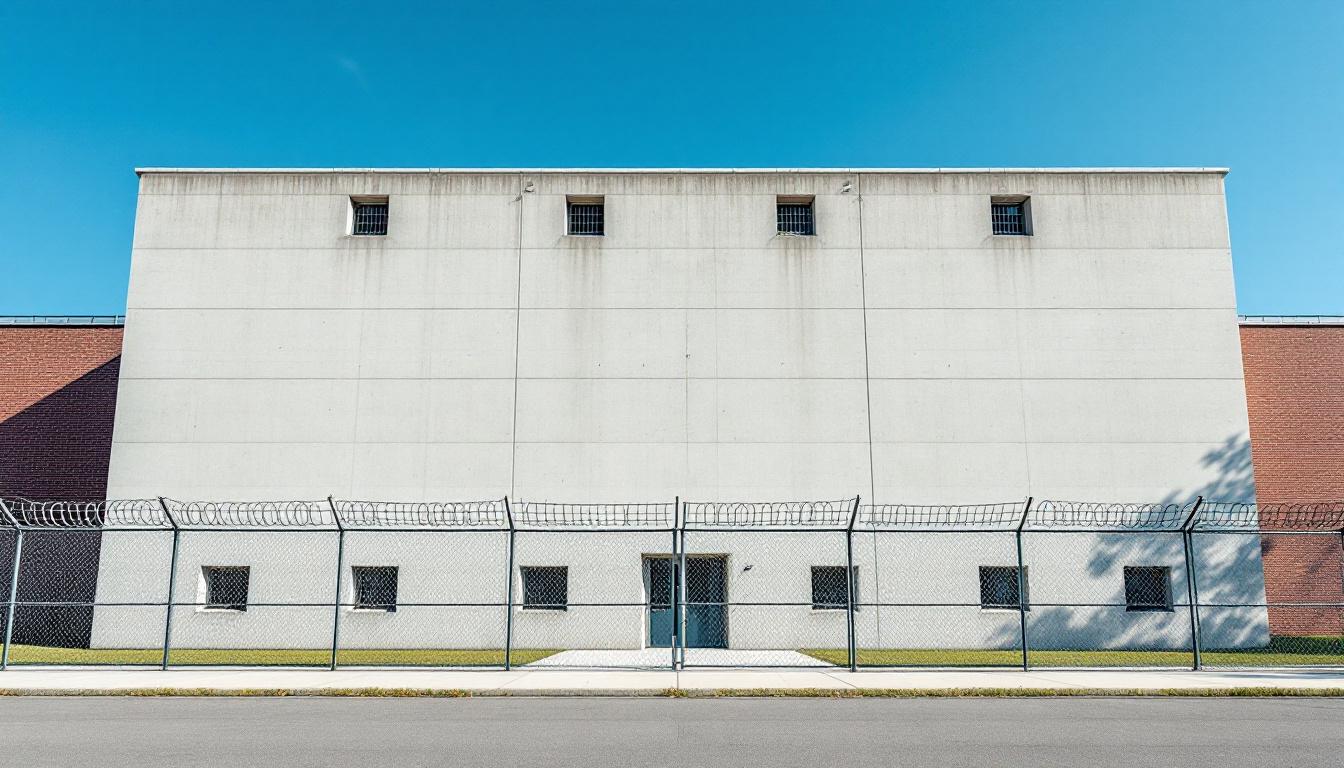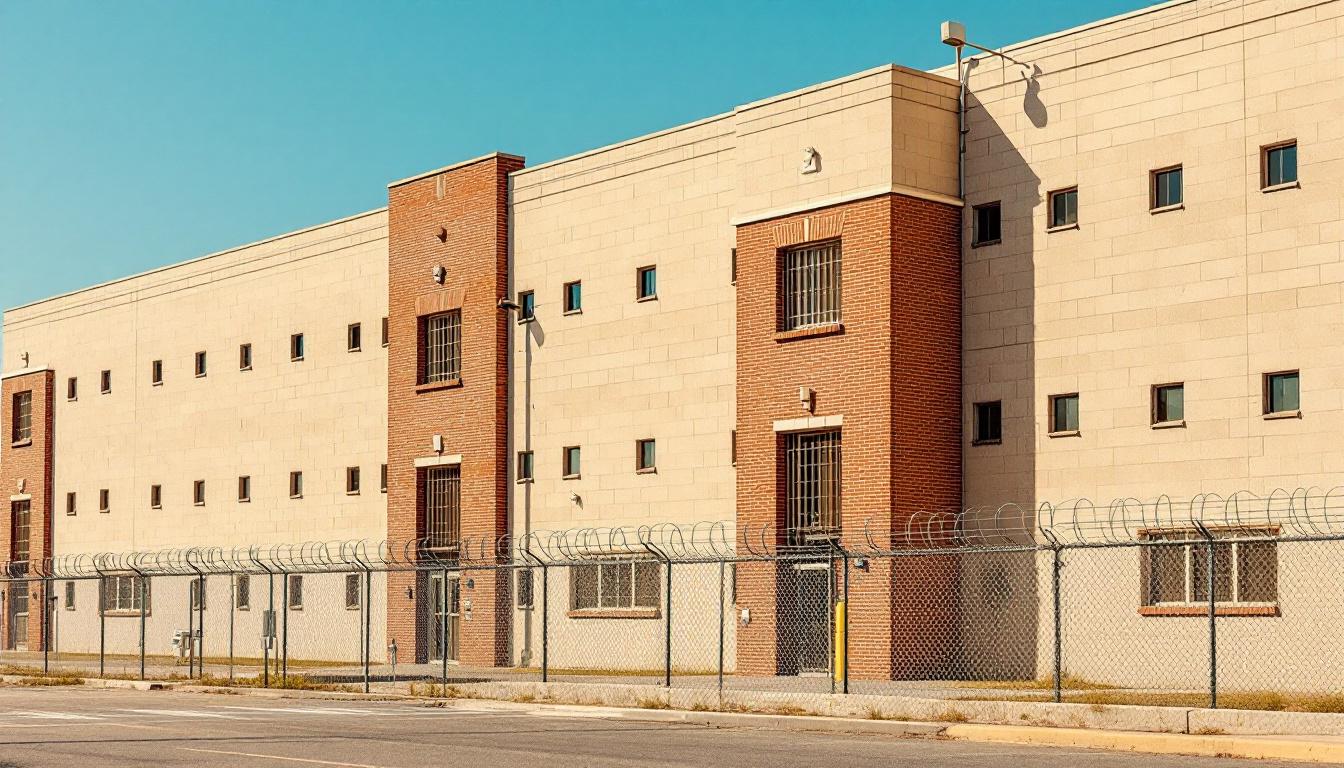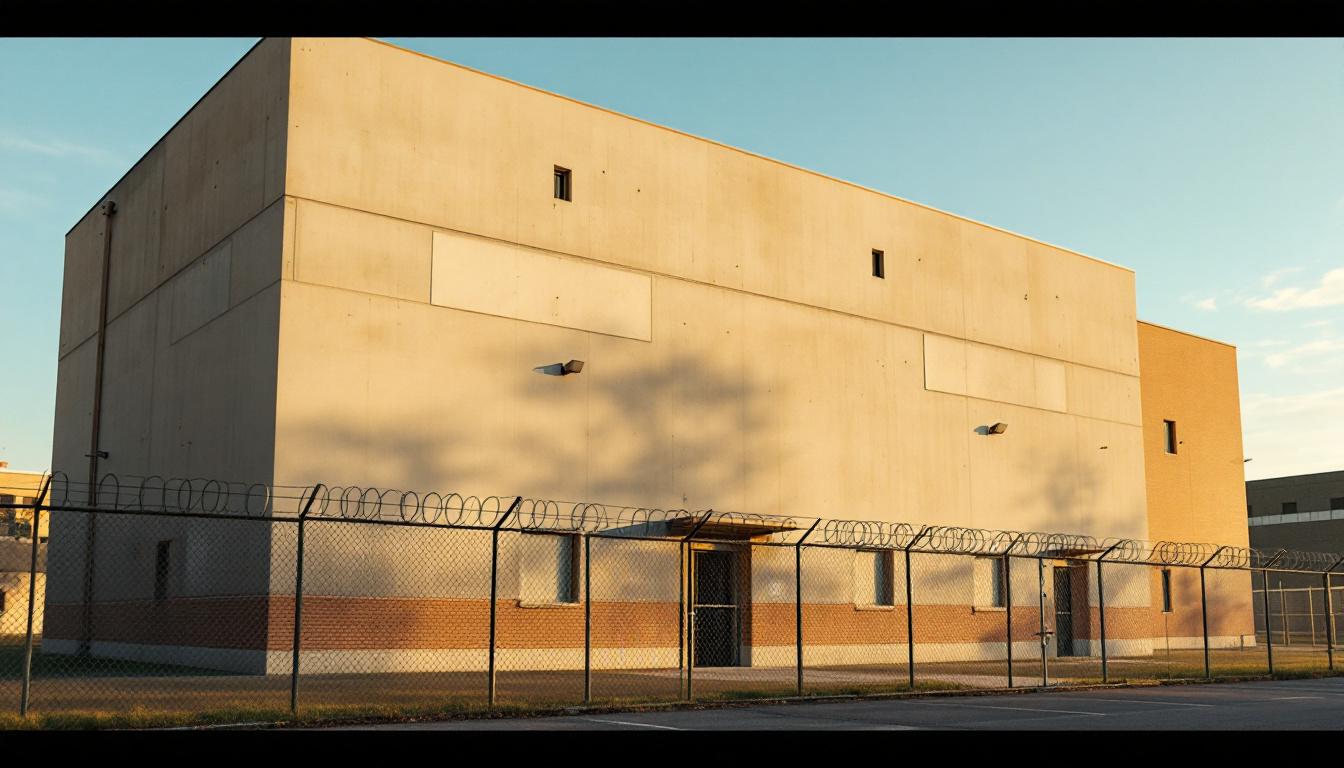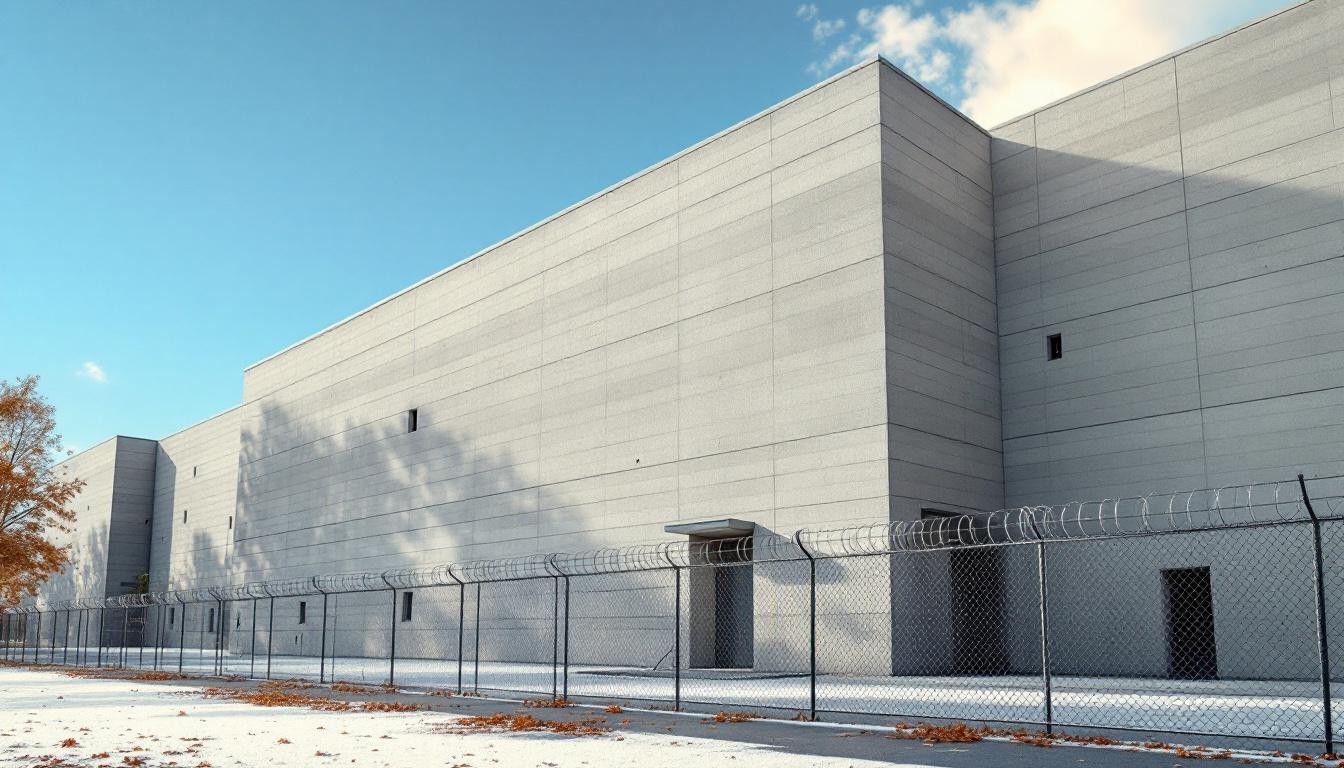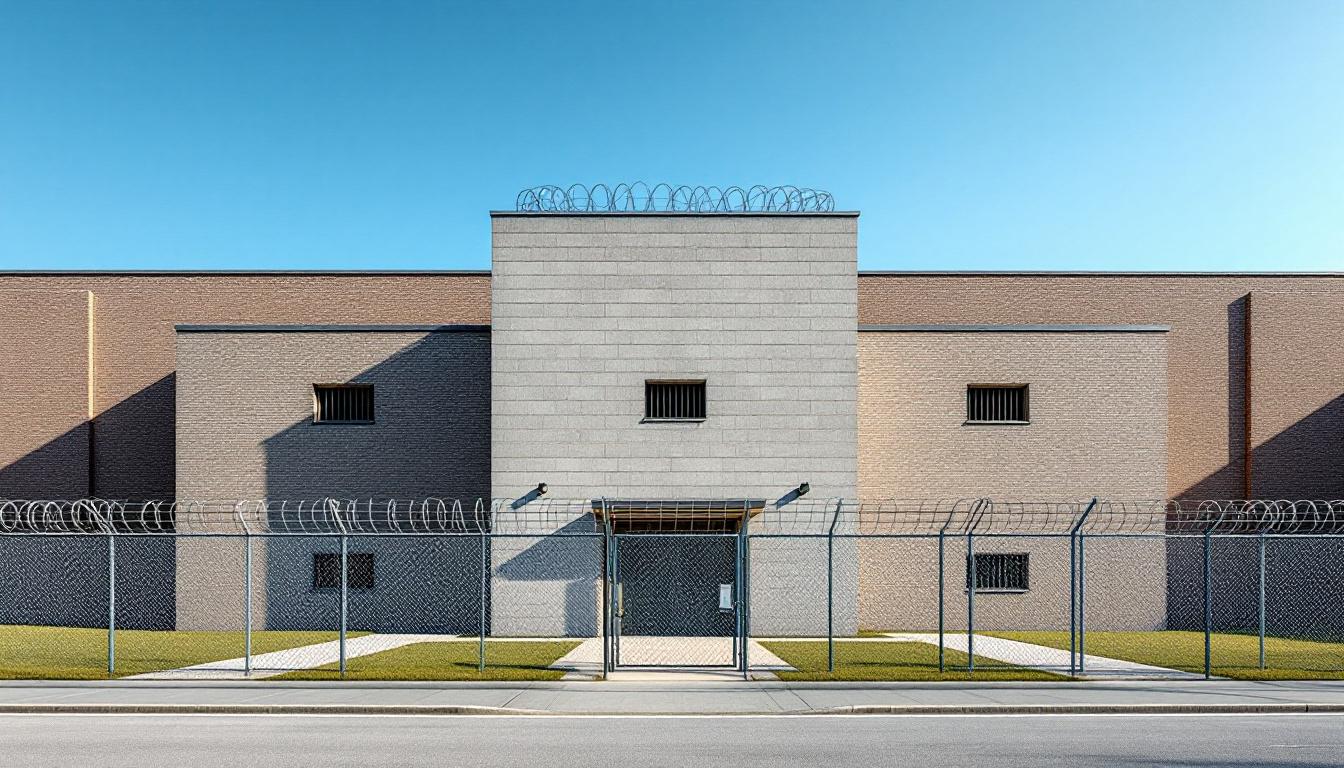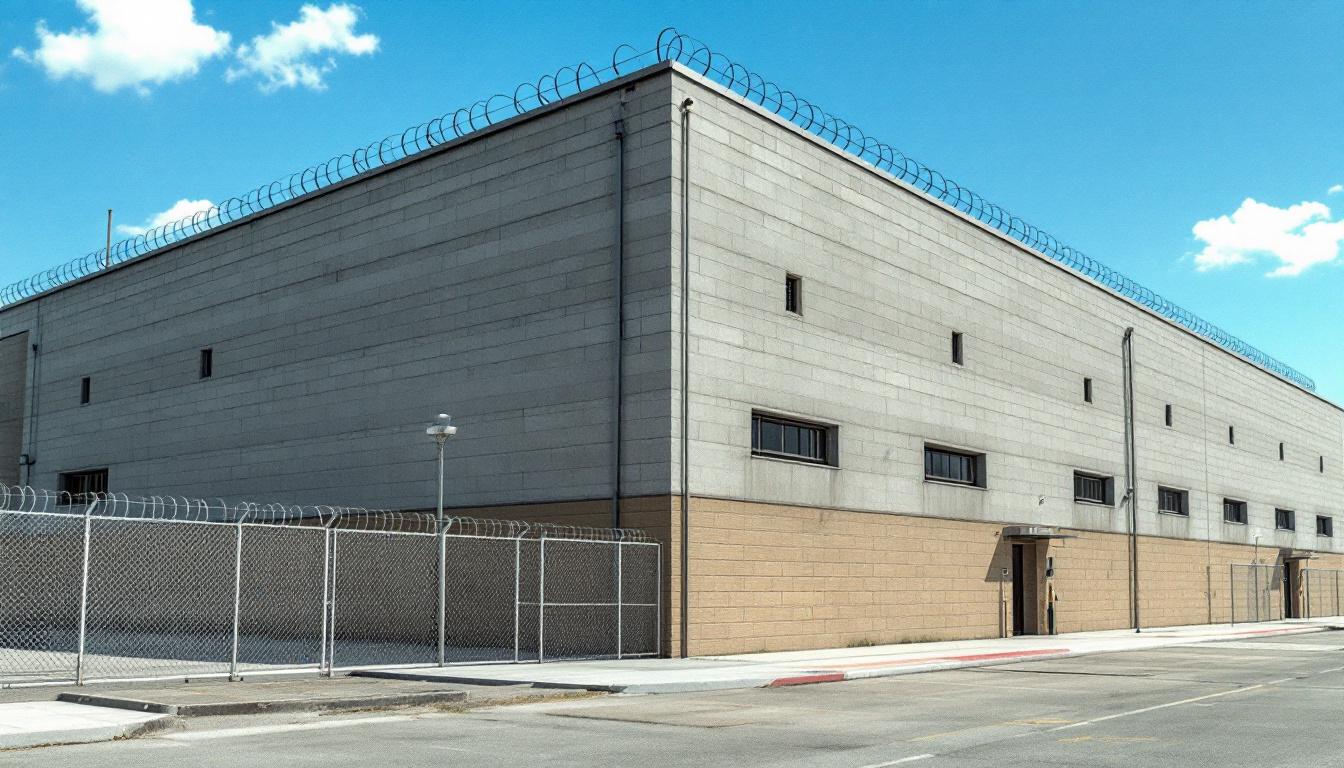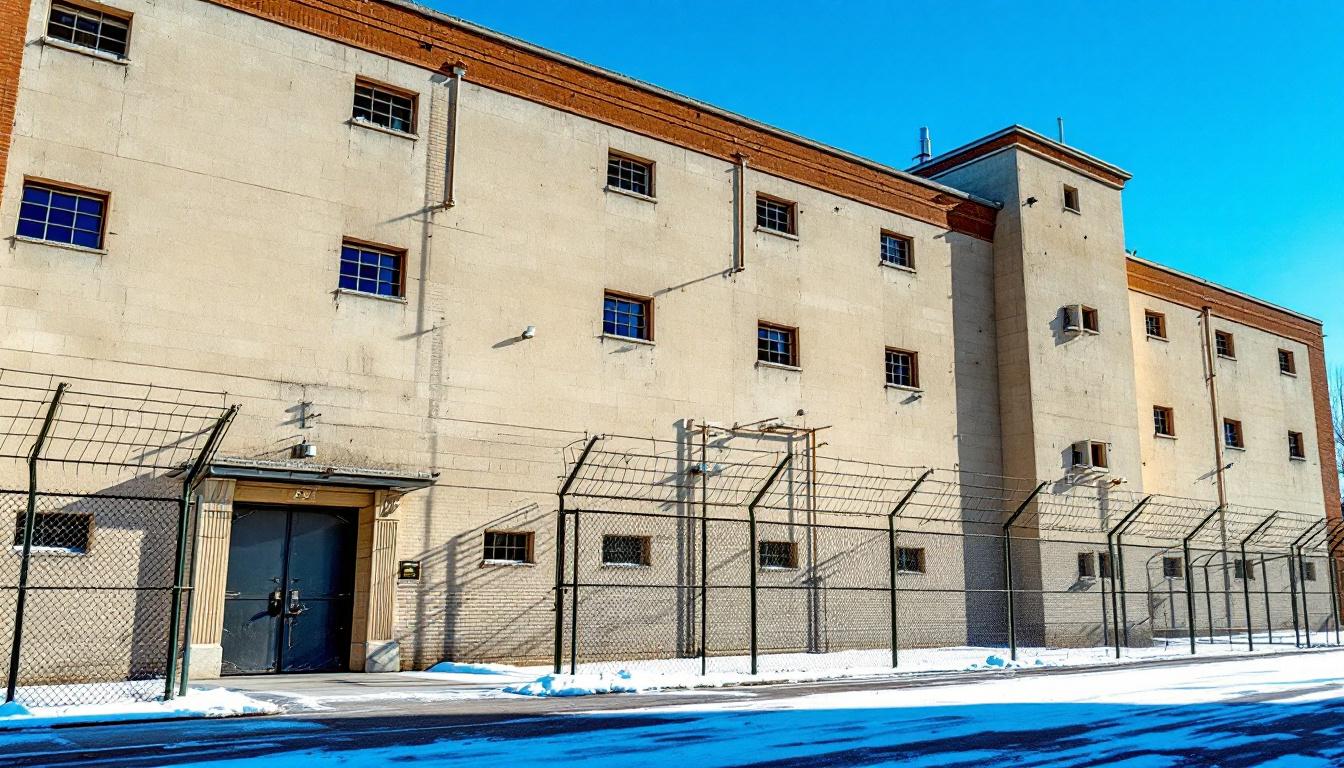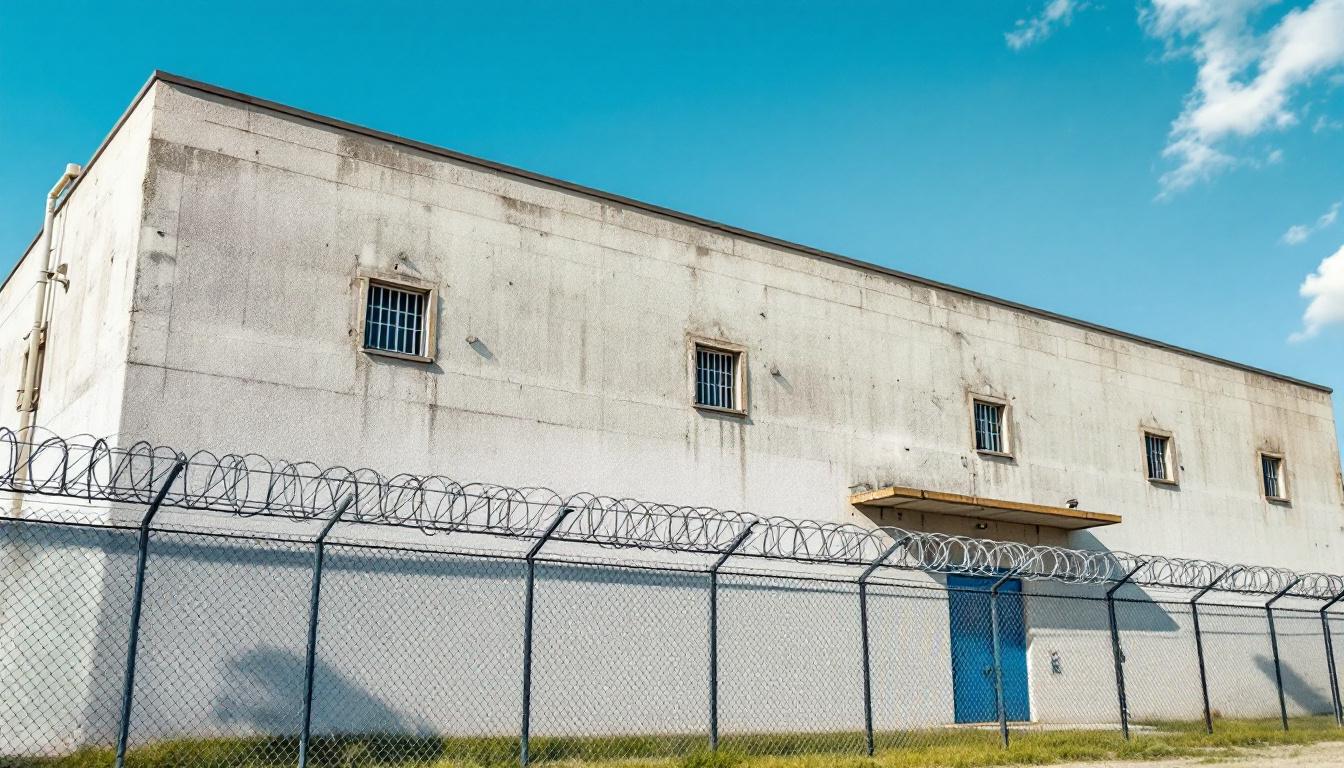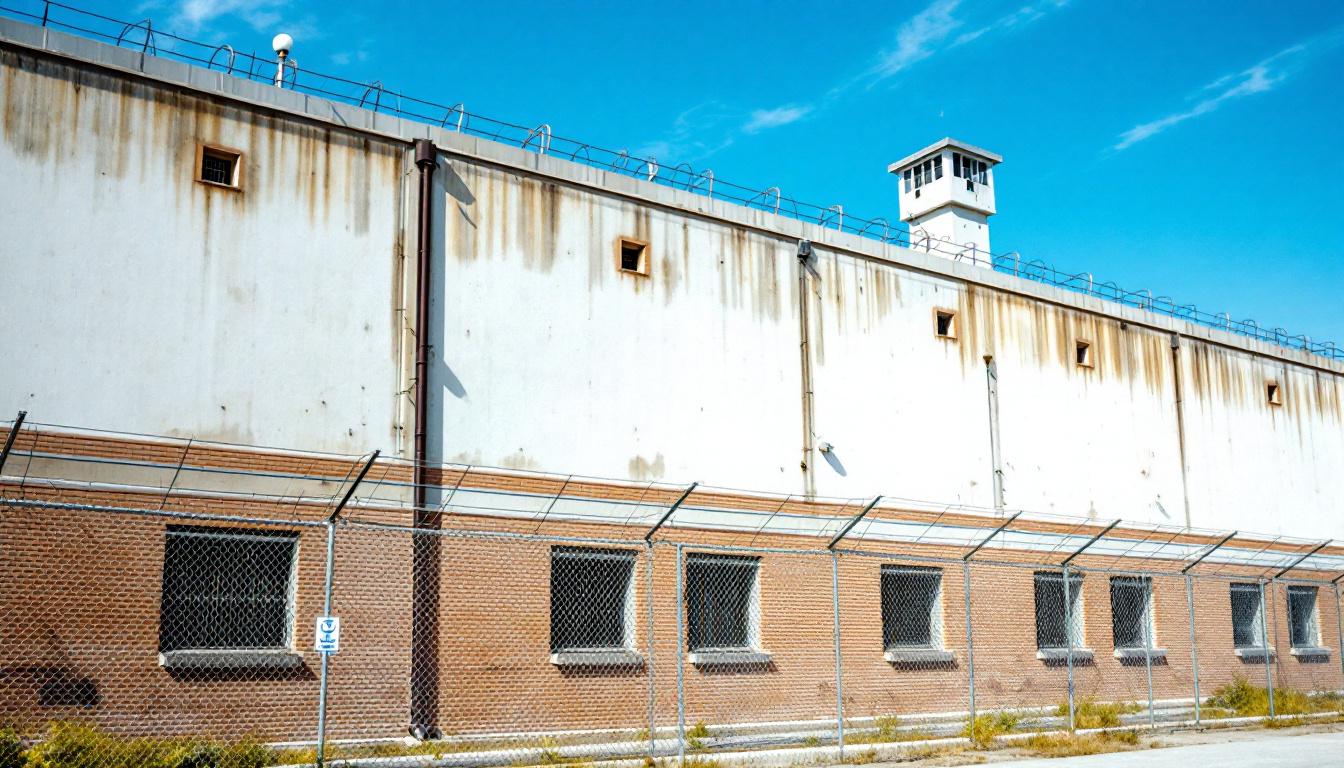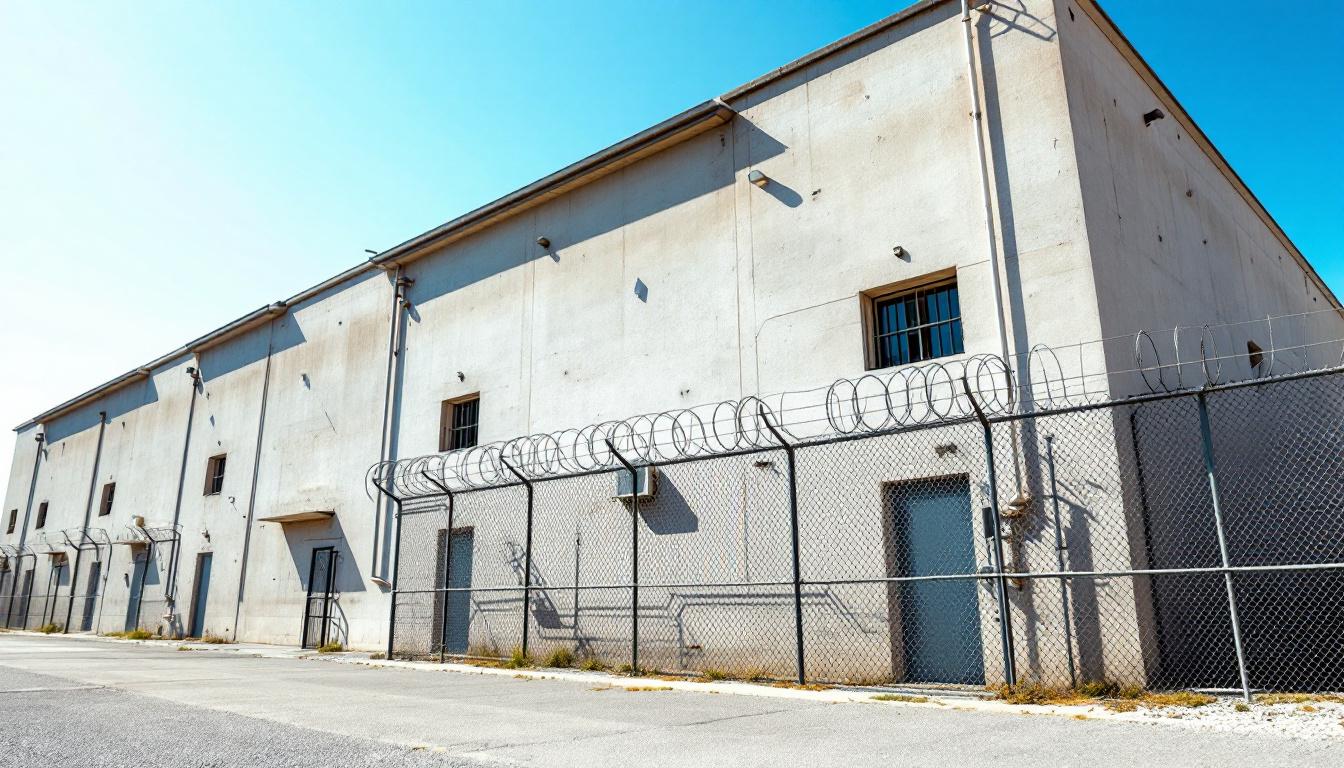
Quick Navigation
How to contact an inmate at Plymouth County Correctional Facility
This comprehensive guide will walk you through how to connect with an inmate at Plymouth County Correctional Facility. Follow the steps below to find an inmate and send letters and photos:
- Search for the inmate using our search tool below
- Create your account or log in to Penmate
- Write your message (up to 6,000 characters)
- Send instantly - inmates receive printed copies daily
Find an Inmate
Search for an inmate to start communicating today
Tip: You can search by first name, last name, or inmate ID number
To contact a person at Plymouth County Correctional Facility start by searching for the person on the official facility website. Perform a search by following these steps:
- Step 1: Enter their first name and last name into the search form and click "Search"
- Step 2: Locate their inmate record
- Step 3: Write down their Inmate ID and any housing information provided
Important! Be sure to enter the person's full name. Nicknames should not be used.
How to Send Messages to Inmates

You can use your phone or computer to send emails, letters, and photos to an inmate. Messages are sent electronically to inmate tablets or kiosks at the facility. If you would like to send a message, start by searching for an inmate at Plymouth County Correctional Facility.
Sending Photos and Postcards

A great way to send love and support to a loved one at Plymouth County Correctional Facility is to send photos and postcards. It only takes a few minutes to send photos from your phone and it makes a huge difference. You can also mail postcards with words of support and inspiration, or design your own postcard for special moments like birthdays and holidays.
Important! Be sure not to send any explicit photos or they may not be approved by the facility. You can also use a photo printing app like Penmate to make sure your photos are printed at the correct size (4x6 or 3x5) and are mailed according to the rules and regulations of Plymouth County Correctional Facility.
Frequently asked questions about Plymouth County Correctional Facility
-
How long does it take to deliver a message?
If you're sending an email message your letter is usually delivered within 24-48 hours. For messages sent via mail you should expect delivery within 3-7 days. All messages will need be approved by Plymouth County Correctional Facility.
-
How much does it cost to send a message to Plymouth County Correctional Facility?
You can send a message free using your phone or mail a message via USPS for the price of a $0.60 stamp and envelope. You can also purchase credits or e-stamps from services starting at $1.99.
-
What services can I use to contact an inmate at Plymouth County Correctional Facility?
Penmate
You can use Penmate to send letters and photos to an inmate from your phone. It's an easy way to stay in touch during your loved one's incarceration. Use the inmate locator to find an inmate's location and contact information, then you can send messages within a few minutes.
Securus messaging
Securus may be another option for communicating with an inmate at Plymouth County Correctional Facility. You can create a friends and family account and purchase credits to send messages. All messages will be reviewed and must be approved by the facility.
JPay
Some county jails and state prisons may support sending messages with JPay. You must register an account with the system, find your loved one, and purchase stamps to send messages. For some locations you can also attach photos.
Smart Jail Mail
You may also check if Smart Jail Mail is available at Plymouth County Correctional Facility. Smart Jail Mail is operated by Smart Communications and has contracted with some state and county jails. After purchasing credits, your messages and photos are sent to the facility, printed out, and then handed out to your loved one.
-
What is the mailing address of Plymouth County Correctional Facility?
Mailing address:
Plymouth County Correctional Facility
26 Long Pond Rd
Plymouth, MA 02360
Phone: (508) 830-6200 -
What are the visiting hours at Plymouth County Correctional Facility?
Visiting hours at Plymouth County Correctional Facility vary by housing unit and security level. Generally, visits are scheduled on weekends and holidays, with some facilities offering weekday visits. Contact the facility directly at (508) 830-6200 or check their website for the current visiting schedule. Visits typically last 30-60 minutes and must be scheduled in advance.
-
What items are prohibited when sending mail to Plymouth County Correctional Facility?
Prohibited items typically include: cash, personal checks, stamps, stickers, glitter, glue, tape, staples, paperclips, polaroid photos, musical or blank greeting cards, hardcover books, magazines with staples, and any items containing metal or electronics. Only send letters on plain white paper with blue or black ink. Photos must be printed on regular photo paper (no Polaroids). Always check with Plymouth County Correctional Facility for their specific mail policies.
-
How do I send money to an inmate at Plymouth County Correctional Facility?
You can send money to an inmate at Plymouth County Correctional Facility through several methods: 1) Online using JPay, Access Corrections, or the facility's approved vendor, 2) Money orders mailed directly to the facility with the inmate's name and ID number, 3) Kiosks located in the facility lobby, or 4) Over the phone using a credit or debit card. Fees vary by method, typically ranging from $2.95 to $11.95 per transaction.
-
Can I schedule a video visit with an inmate at Plymouth County Correctional Facility?
Many facilities now offer video visitation as an alternative to in-person visits. At Plymouth County Correctional Facility, video visits may be available through services like Penmate, Securus Video Connect, GTL, or ICSolutions. Video visits typically cost $10-20 for 20-30 minutes and must be scheduled in advance. You'll need a computer or smartphone with a camera and reliable internet connection. Contact the facility for their specific video visitation policies and approved vendors.
-
What identification do I need to visit an inmate at Plymouth County Correctional Facility?
All visitors must present valid government-issued photo identification such as a driver's license, state ID, passport, or military ID. Minors must be accompanied by a parent or legal guardian who can provide the minor's birth certificate. Some facilities require visitors to be on the inmate's approved visitation list, which may require a background check. Contact Plymouth County Correctional Facility for specific ID requirements and visitor approval procedures.
-
How can I find out an inmate's release date?
To find an inmate's release date at Plymouth County Correctional Facility, you can: 1) Use the online inmate search tool if available, 2) Call the facility's records department, 3) Contact the inmate's case manager or counselor, or 4) Have the inmate provide this information during a call or visit. For privacy reasons, some facilities only release this information to immediate family members.
Facility Overview
Contact Information
Plymouth County Correctional Facility26 Long Pond Rd
Plymouth, MA 02360
Phone: (508) 830-6200
Official Website
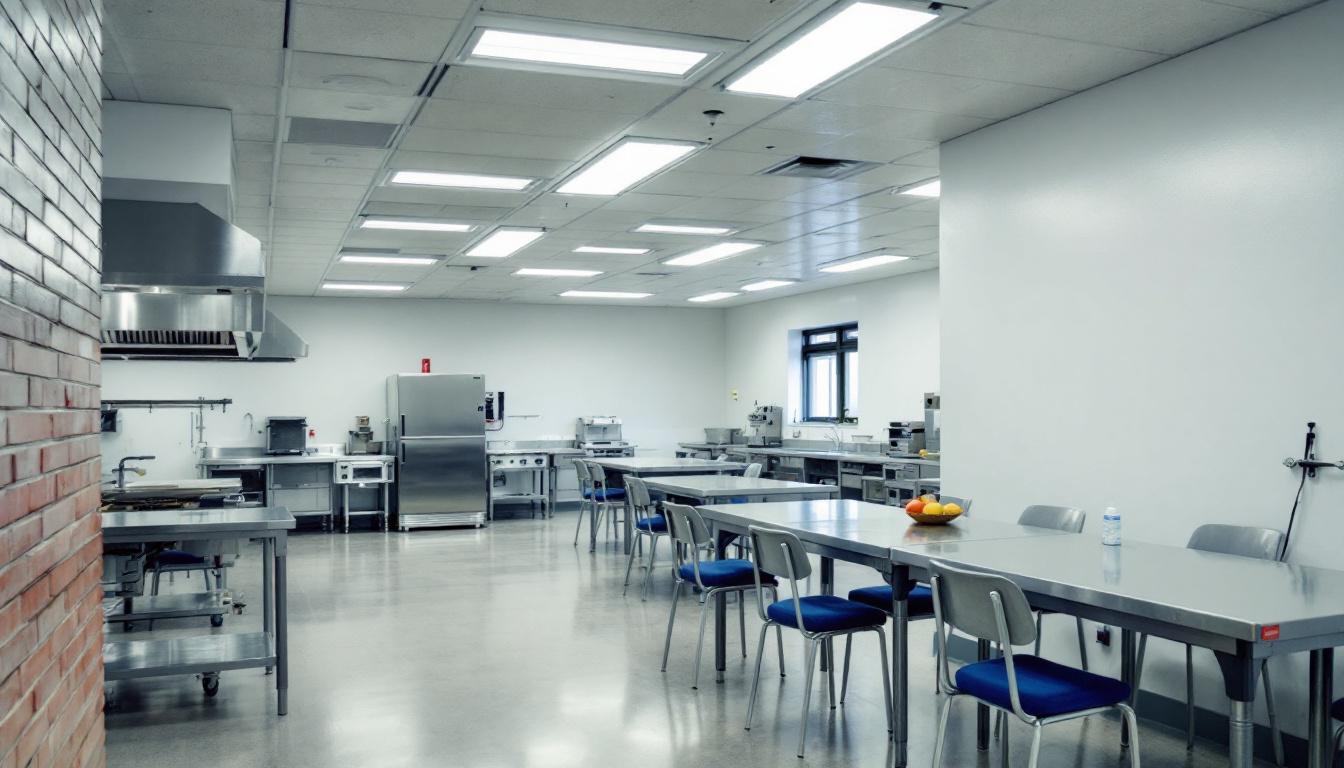
About Plymouth County Correctional Facility
Nestled within the community of Tampa, Massachusetts, the Plymouth County Corrections Facility, MA operates as an integral component of the state's broader correctional framework, emphasizing balanced security measures alongside comprehensive rehabilitation initiatives. This MA correctional facility typically maintains multiple security classifications, allowing staff to tailor supervision levels according to individual resident needs while fostering an environment conducive to personal growth and community reintegration. The facility's approach generally reflects Massachusetts' commitment to evidence-based correctional practices, where security protocols work in harmony with educational and therapeutic programming.
The facility's residents services often encompass a range of educational opportunities, from basic literacy instruction to vocational training programs that may include construction trades, culinary arts, and technology skills development. Mental health support typically forms a cornerstone of daily operations, with counseling services and substance abuse treatment programs frequently available to address underlying factors contributing to criminal behavior. Medical care, recreational activities, and family visitation programs generally complement these core services, creating a structured environment where residents can develop practical skills while maintaining important community connections.
Within the New England correctional landscape, Plymouth County Corrections Facility, MA typically collaborates with state agencies and community organizations to ensure smooth transitions upon release. Pre-release planning services may include job placement assistance, housing coordination, and continued access to treatment programs, reflecting the facility's integration with state correctional goals of reducing recidivism and promoting successful community reentry. This comprehensive approach generally positions the correctional facility as both a secure detention center and a catalyst for positive behavioral change within Massachusetts' evolving criminal justice system.
Programs & Services
Educational advancement serves as the cornerstone of rehabilitation initiatives at Plymouth County Corrections Facility, where comprehensive programming addresses the multifaceted needs of residents through carefully structured interventions. The facility's approach emphasizes skill development and personal growth, recognizing that meaningful change occurs when individuals have access to diverse learning opportunities that build both practical competencies and emotional resilience. This philosophy permeates throughout the institution's various initiatives, creating an environment where residents may engage in transformative experiences that prepare them for successful community reintegration.
Academic programming typically encompasses fundamental education services designed to address literacy gaps and support residents in achieving educational milestones that may have been previously unattainable. These educational initiatives often include basic literacy instruction, high school equivalency preparation, and continuing education opportunities that allow residents to advance their academic standing. Additionally, vocational training in specialized areas such as small engine repair provides residents with marketable skills and hands-on experience in technical fields. Such vocational initiatives may deliver practical training that combines theoretical knowledge with applied learning, enabling participants to develop expertise in areas with strong employment potential upon release.
Therapeutic interventions form another crucial component of the facility's comprehensive approach, with mental health treatment and counseling services typically available to address the psychological and emotional challenges that residents may face. These mental health initiatives often include individual counseling sessions, group therapy programs, and specialized treatment modalities designed to support personal healing and behavioral change. Additionally, support services encompass broader vocational programs that may extend beyond specific trades to include life skills development and workplace readiness training. Food service operations frequently serve a dual purpose, providing essential institutional functions while simultaneously offering residents valuable work experience and training in food preparation, safety protocols, and service industry practices that may enhance their employment prospects following release.
Daily Life & Visitation
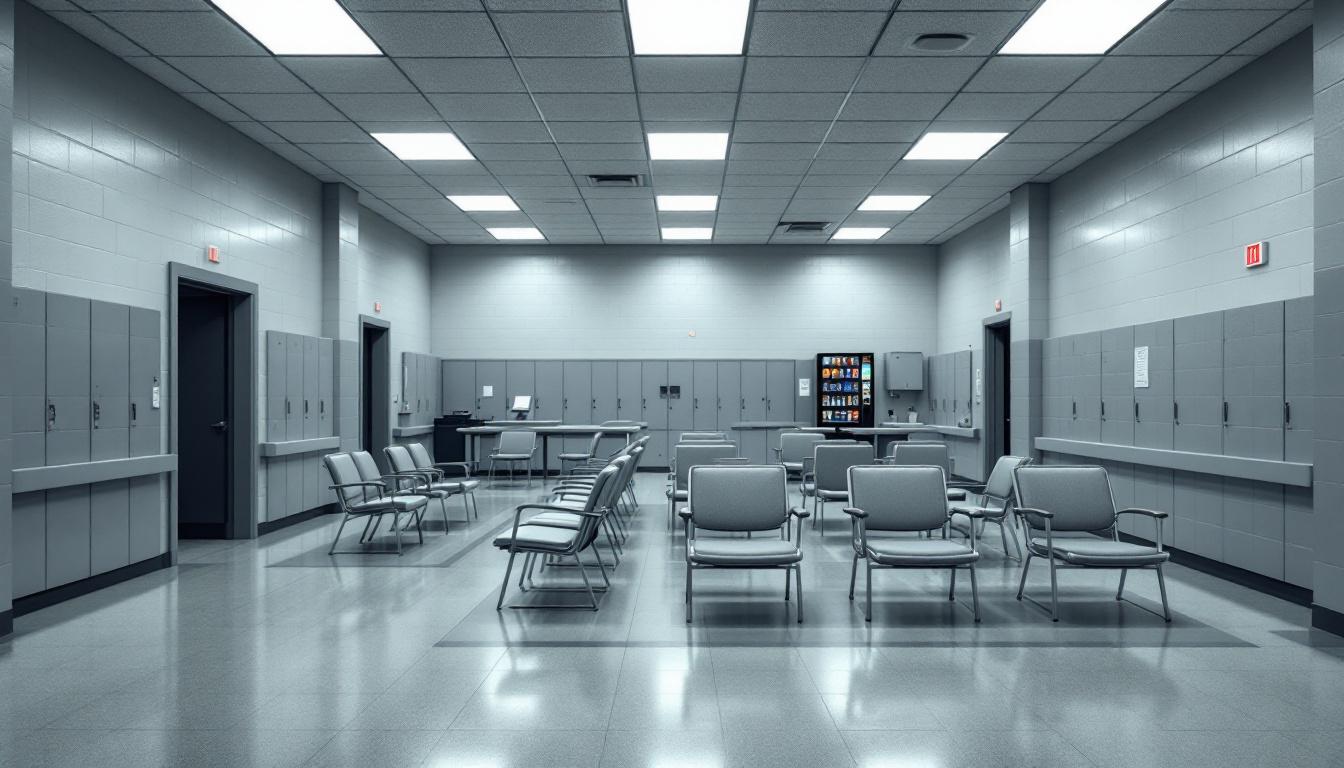
The consistent rhythm of scheduled activities and structured routines forms the backbone of residential life, delivering stability through predictable daily patterns that residents can rely upon. Today begins with early morning counts and meal service, followed by work assignments, educational programming, or recreational periods that are generally maintained throughout the week. This structured approach typically helps residents develop healthy habits and time management skills while providing a sense of normalcy within the correctional environment.
Living accommodations at the facility generally consist of shared housing units where residents are assigned beds and storage space for approved personal belongings. The dining arrangements usually involve scheduled meal times in common areas, with menus that aim to provide balanced nutrition while accommodating various dietary needs and restrictions. Additionally, residents typically have access to a commissary system where they can purchase approved personal items, snacks, and hygiene products using funds from their facility accounts, which may be maintained through deposits from family members or earnings from work assignments.
While daily routines provide structure, the facility often includes recreational opportunities such as television viewing areas, library access, and physical exercise periods that may take place in designated outdoor or indoor spaces. Programming schedules typically deliver educational classes, life skills training, and counseling sessions designed to support rehabilitation goals. Furthermore, residents usually maintain connections with family and friends through scheduled visitation periods and phone call privileges, which are generally regulated by facility policies but serve as important sources of emotional support and motivation during their time at the facility.
Ready to Connect?
Start communicating with your loved one today
Search for an Inmate
